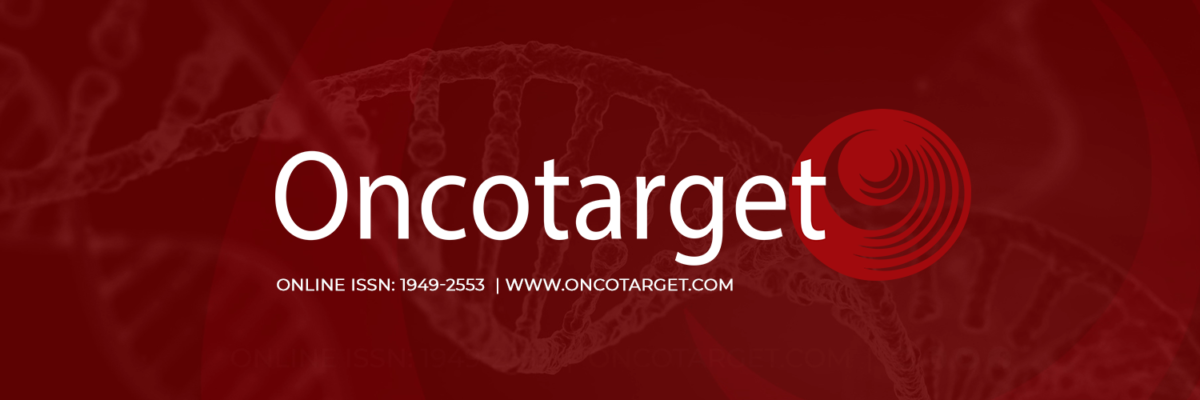“The discovery of novel modulators of the SHH pathway to advance SHH-MB treatment is greatly needed.”
BUFFALO, NY- September 15, 2022 – A new editorial paper was published in Oncotarget on September 8, 2022, by researchers Jingwen Zhu, Joseph N. Miller and John D. Schuetz from St. Jude Children’s Research Hospital in Memphis, Tennessee, entitled, “An ABC transporter as a potential target against SHH-Medulloblastoma: From Benchtop to Bedside.”
Medulloblastoma (MB) is a common malignant pediatric brain tumor divided into four main subgroups (WNT, SHH, Group 3 and 4). The most prevalent MB in children <3 years is the Sonic Hedgehog (SHH) subtype, which arises from granule neuron progenitors with aberrant SHH signaling.
While a standard treatment regimen includes tumor resection followed by a combination of craniospinal irradiation and chemotherapy, recommended treatment for patients <3 years consists of only chemotherapeutics as radiation therapy produces neuro-developmental side-effects. For SHH-MB, smoothened (SMO) inhibitors were initially seen as a promising therapy as SMO is central to SHH pathway activation. However, this approach yielded diminishing returns for young children due to: 1) SMO acquired therapy-induced drug-resistant mutations; 2) treatment with these inhibitors lead to irreversible developmental defects; and 3) gene alterations in SHH signaling downstream from SMO circumvent SMO inhibition. The discovery of novel modulators of the SHH pathway to advance SHH-MB treatment is greatly needed.
“Thus, the identification of novel targetable regulators that function downstream of SMO is desirable to enhance SHH-MB therapy.”
While the involvement of ATP-Binding Cassette (ABC) transporters in drug resistance is well studied, emerging studies have discovered their biological roles in tumorigenesis or cancer progression.
Use of a data-driven systems biology approach led to the identification ABCC4 as a novel target of SHH-MB. Presumably this method could be expanded to uncover ABCC4’s role in other diseases with altered SHH signaling or other cancers in which high expression of ABCC4 is a hallmark of poor prognosis. Therefore, future studies should aim to obtain a better understanding of ABCC4’s biological roles in different cancers and to overcome therapeutic barriers in implementation of ABCC4 inhibitors.
“These aims are fundamental in directing the development of ABCC4 inhibitors towards the ideal therapeutic strategy and providing a helpful guidance for clinical use to attain maximum efficacy.”
DOI: https://doi.org/10.18632/oncotarget.28272
Correspondence to: John D. Schuetz – Email: john.schuetz@stjude.org
Keywords: transporter, chemotherapeutics
ONCOTARGET VIDEOS: YouTube | LabTube | Oncotarget.com
—
About Oncotarget:
Oncotarget (a primarily oncology-focused, peer-reviewed, open access journal) aims to maximize research impact through insightful peer-review; eliminate borders between specialties by linking different fields of oncology, cancer research and biomedical sciences; and foster application of basic and clinical science.
To learn more about Oncotarget, visit Oncotarget.com and connect with us on social media:
- Twitter – https://twitter.com/Oncotarget
- Facebook – https://www.facebook.com/Oncotarget
- YouTube – www.youtube.com/c/OncotargetYouTube
- Instagram – https://www.instagram.com/oncotargetjrnl/
- LinkedIn – https://www.linkedin.com/company/oncotarget/
- Pinterest – https://www.pinterest.com/oncotarget/
- LabTube – https://www.labtube.tv/channel/MTY5OA
- SoundCloud – https://soundcloud.com/oncotarget
For media inquiries, please contact: media@impactjournals.com.
